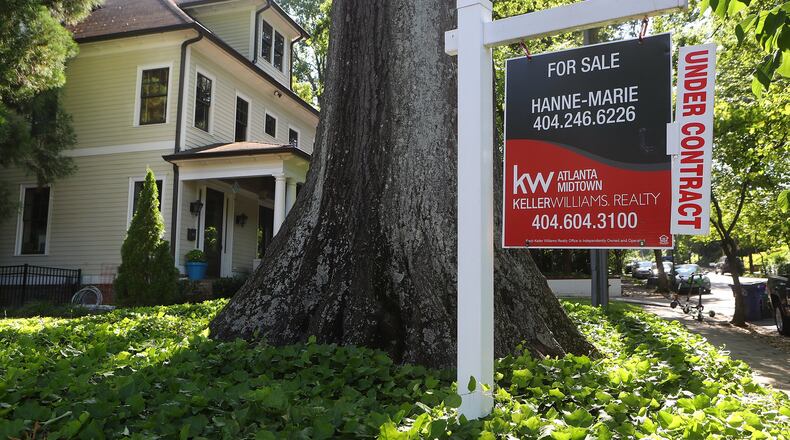After surveying residents of 13 metro Atlanta counties, the Atlanta Regional Commission found that 46% of them believe they wouldn’t be able to afford to stay in their neighborhood if they had to move today.
The ARC’s 2019 “Metro Atlanta Speaks Survey” asked 5,450 people from 13 metro counties about their opinions on the most pressing issues facing the region. The survey, conducted annually to help regional commission planners identify and address issues in the metro area, found that housing affordability was a top concern for many.
READ | Gwinnett mixed-use development adding go-karts, Starbucks, Chipotle
The perceptionthat they can't afford an in-neighborhood move isn't far off from reality, according to the organization. Housing costs increased 35% between 2011 and 2017 throughout the metro region. During that same time frame, wages increased only 15%.
“Wage growth is exacerbating affordability (problems) because home prices are going up, rents are going up, but wages are not keeping pace,” said Mike Carnathan, the ARC’s manager of the research and analytics.
The sense that people’s neighborhoods are becoming unaffordable is consistent across the 13-county metro area, which includes Butts, Cherokee, Clayton, Cobb, Coweta, DeKalb, Douglas, Fayette, Fulton, Gwinnett, Henry, Paulding and Rockdale. But unaffordability worries are most pronounced for residents in Atlanta and DeKalb, Gwinnett and Clayton counties.
The survey found rising home prices have made it more challenging for people to afford an in-neighborhood move in Gwinnett, DeKalb and Atlanta (with responses of 51%, 47% and 48% respectively). In Clayton, Carnathan attributed that sentiment in part to a lower-income population.
Just in the past year, average home prices have increased 7.9% in DeKalb County, 6.1% in Gwinnett and 5.2% in Atlanta, according to real estate website Zillow.
“What we have seen is increasingly rising home prices over the past 5 years,” Carnathan said. “It would make sense people would see difficulty moving in their same area, given the home prices.”
More than two-thirds of respondents in the survey said they noticed house “flipping” in their neighborhoods. Flipping is when an investor buys a house that may be old or in need of significant repairs, remodels it and sells it for significantly more than it was purchased for. That eats into a supply of homes that would otherwise be less expensive, albeit with dated wallpaper, Carnathan said. Maintaining “naturally occurring affordability” of older homes is a strategy the ARC has put forward to cities as one strategy to help people remain in their communities.
“Those will be at the most risk to be completely rehabilitated and the affordability goes away, or to get torn down altogether and be replaced with something more expensive,” Carnathan said.
The challenges metro Atlanta faces with housing affordability are not unique. Metropolitan areas around the country are seeing similar issues, Carnathan said. A lack of new homes is a still-lingering effect of the Great Recession. When resident don’t feel they can afford a better home, they tend to stay in their existing homes, causing issues with supply and demand.
In suburban areas like Gwinnett, denser housing developments such as townhomes and apartments may help assuage the issue, but there is no “one-size-fits-all solution,” Carnathan said.
“We do have a regional consensus that housing affordability is a significant headwind to our future success,” Carnathan said. “With housing it is complicated because housing markets are local. It’s going to be a neighborhood by neighborhood effort.”
Like Gwinnett County News on Facebook | Follow us on Twitter and Instagram
Stay up to the minute with breaking news on Channel 2 Action News This Morning
About the Author
The Latest
Featured

